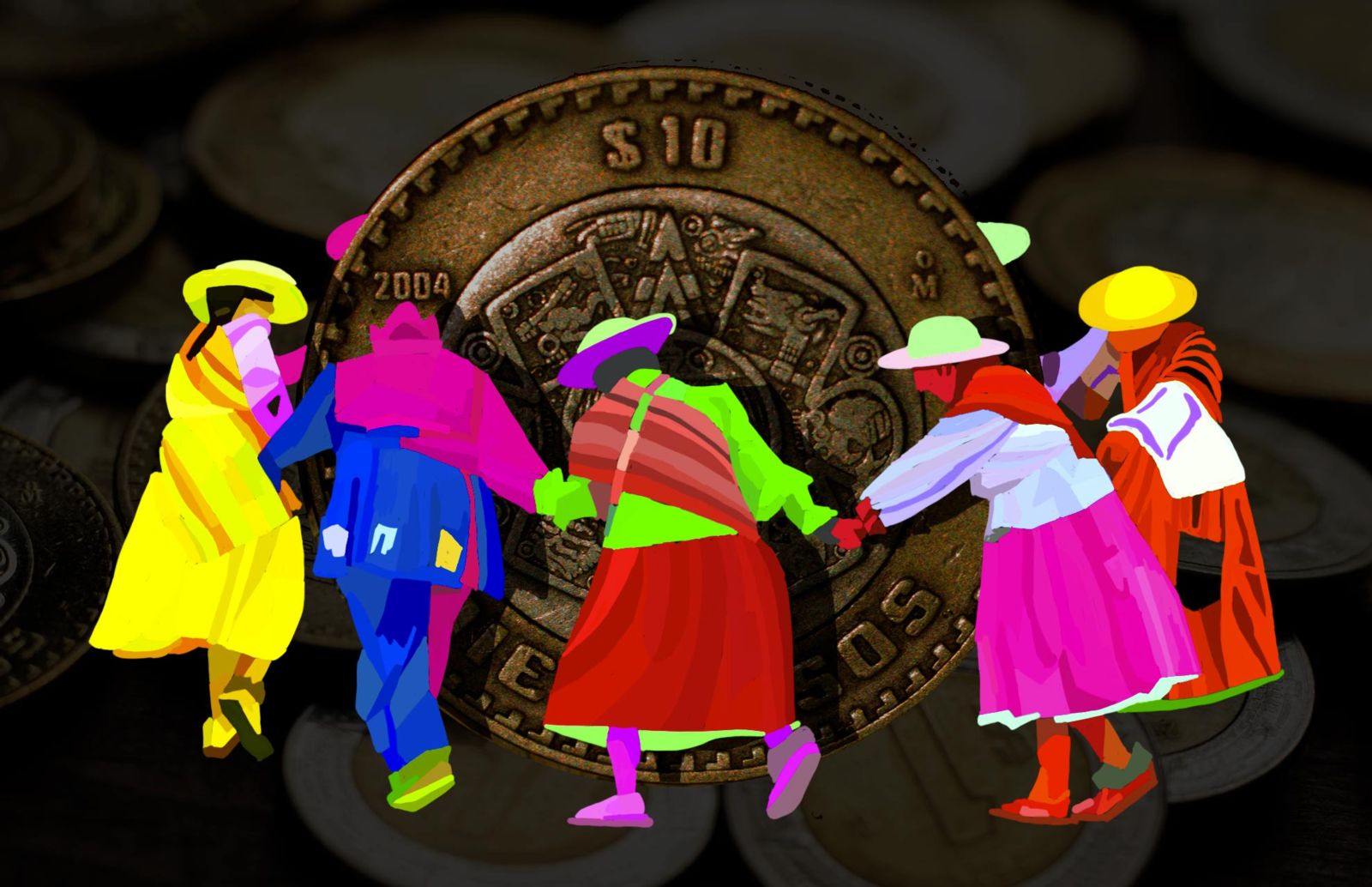Lack of funding is a recurrent challenge faced by many grassroots mobilizations. In fact, an entire section of this blog is dedicated to it. In previous articles, contributors have highlighted different ways to grapple with the challenge, from building sustainable revenue models (Burnett and Smith) to developing strategies for obtaining better donations (Linos, Jakli, and Carlson) and fostering mutual aid mechanisms (Gutierrez, Mesel, Ilyes, and Chiponda). Here, I highlight an innovative legal strategy that is being embraced by Indigenous movements seeking to achieve financial autonomy in Mexico—a strategy that is recentering the state as a relevant source of funding and revealing the redistributive power of human rights.
Self-governance remains an elusive goal for many Indigenous peoples. Besides fighting for their lands and resisting the extraction of their resources, many groups also struggle to secure the financial means necessary to sustain self-governance. In light of the historical injustices that have persisted until today, procuring these resources is an ongoing challenge.
Currently, dozens of Indigenous communities in Mexico are financing their self-governments by exercising a right colloquially known as presupuesto directo (direct budgeting), which is a recent creation. It was first articulated in 2015 as a way to vernacularize Article 4 of the UN Declaration on the Rights of Indigenous Peoples, which establishes that Indigenous peoples are entitled to the “means of financing their autonomous functions.” This right to direct budgeting advances a simple argument: if Indigenous communities are entitled to the means to finance their self-governance institutions, then the state has a duty to guarantee those resources by providing equitable access to public funds.
In Mexico, the right to direct budgeting has had a short but turbulent history. The idea emerged in 2015 in Pichátaro, a Purhépecha community in modern-day Michoacán. Aggravated by the unfair distribution of public funds, the inhabitants of Pichátaro mobilized and demanded that their community council be allowed to manage a proportional share of the public budget. Their legal claim was quite unorthodox, as the Mexican fiscal system has yet to recognize the right of Indigenous organizations to participate in the ordinary distribution of public funds. However, with the help of Colectivo Emancipaciones, a local group of legal activists, Pichátaro filed a lawsuit—surprisingly, they won.
In 2016, the federal electoral court issued a paradigmatic decision recognizing the right to direct budgeting. The judges found that, if they so desired, Indigenous communities should be allowed to manage a share of the public funds that federal and state governments allocate to local governments. This precedent sparked a wave of legal mobilizations. All across the state of Michoacán, Indigenous communities sought to access those funds to establish self-government institutions. Within three years, Emancipaciones represented six other cases for direct budgeting.
Expectedly, the reaction against these claims was intense. Political elites decried the reallocation of funds and filed numerous constitutional challenges against the recognition of Indigenous self-governance. Eventually, one of these legal challenges succeeded. In 2020, a new composition of the court overturned the recognition of direct budgeting. However, the movement for Indigenous self-governance survived—by that point, it had already accumulated enough resources to fight back.
Anticipating the backlash, a group of communities founded an inter-community organization called “Front for the Autonomy of Indigenous Councils.” Working in tandem with Emancipaciones, this organization promoted a legal reform to codify the right to direct budgeting in the local laws of Michoacán. This new law, which recognizes direct budgeting, was adopted in 2021 alongside a state protocol with rules to expedite the reallocation of funds.
After this law was passed, dozens of Indigenous communities claimed their right to direct budgeting. By December 2022, I had identified 32 cases—most in Michoacán, but the numbers keep growing and expanding to other regions of Mexico. Recently, the Maya community of La Calendaria became the first community in Chiapas to successfully claim their right to direct budgeting. To give more visibility to these movements, I am currently preparing to relaunch “Huellas del Autogobierno,” an online project that began as part of my doctoral research and that will trace and showcase successful claims for direct budgeting.
Admittedly, the experience with direct budgeting is in its infancy, and its future remains uncertain. At the time of writing, the Supreme Court of Mexico was debating whether to uphold the law that protects the right to direct budgeting. Forestalling a potential revocation, Emancipaciones and the Front for Autonomy have already filed a petition to the Inter-American Commission on Human Rights.
Regardless of what happens in the courts, the political struggles around direct budgeting are dynamic and offer a couple of valuable insights to other Indigenous communities and rights practitioners.
As a financial model, the right to direct budgeting repositions the state as a potential source of funds for grassroots movements. Today, many social justice activists are skeptical of relying on external sources of funding. With valid reasoning, they worry about the cooptation and undue influences such a dependence may have. For example, the Zapatistas are known for their staunch opposition to the state. However, direct budgeting creates a relatively stable source of funds with few strings attached. Outside of the basic rules of fiscal accounting, Indigenous communities can spend their funds according to Indigenous decision-making mechanisms.
As a human rights strategy, the right to direct budgeting has opened the door to a redistributive process that was long overdue. Indigenous communities in Mexico have long been marginalized. In 2001, the constitution was amended to recognize that Indigenous communities should be allowed to manage their own resources. However, the amendment said little about the duty of the state to make public resources available to them. Ironically, even the budget for Indigenous development is administered by state agencies. In this context, the right to direct budgeting is finally reversing a situation that stemmed from a colonialist mindset. Instead of the state extracting resources from Indigenous communities, Indigenous communities are recovering a little of what is rightfully theirs.

